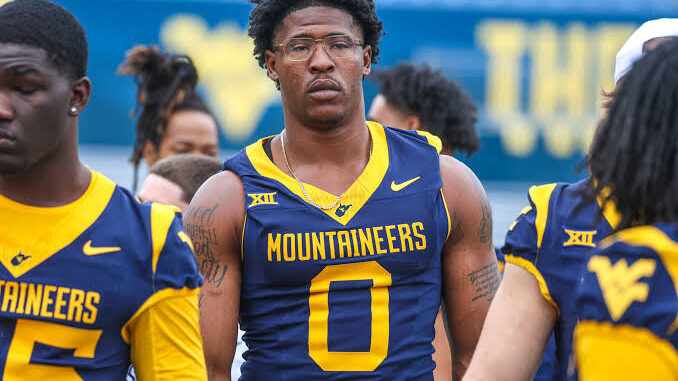
Seeking eligibility, four Mountaineer football players file suit against NCAA.
RALEIGH, W.Va. — Four West Virginia University football players have taken legal action against the NCAA in the U.S. District Court of the Northern District of West Virginia, seeking to be deemed eligible to play in the 2025 season. Plaintiffs Tye Edwards, Justin Harrington, Jimmori Robinson, and Jeffrey Weimer all transferred to WVU during the offseason and had their waiver requests denied by the NCAA.
The lawsuit, filed on August 1, alleges violations of both federal and West Virginia antitrust laws, as well as breach of contract. The players contend that they are third‑party beneficiaries of NCAA membership agreements and assert that NCAA enforcement decisions have been arbitrary and capricious. The suit asks a court to block the NCAA from enforcing its eligibility rules against them, arguing that their anticipated additional year of play influenced their decision to remain in school instead of entering the NFL draft.
All four athletes previously played multiple seasons at junior colleges before transferring into Division I beginning between 2018 and 2019. Among them, Jimmori Robinson, a defensive lineman, is the most accomplished—the former UTSA standout earned AAC Defensive Player of the Year honors in 2024 after recording 43 tackles and 10.5 sacks. Edwards, Harrington, and Weimer also posted strong junior college careers: Edwards rushed for over 1,500 yards in two seasons, Harrington logged multiple seasons at Oklahoma and Washington as a safety, and Weimer starred at UNLV and Idaho State as a wide receiver.
While the players are permitted on WVU’s facility grounds, Head Coach Rich Rodriguez confirmed they remain on the sidelines: “They can come by the building. We don’t have to throw them out, but they’re truly on their own,” Rodriguez said. “We’re a week into camp, but the sooner we know something, better.”
Their legal action ties into a broader wave of lawsuits challenging the NCAA’s longstanding “five‑year rule,” which limits athletes to four seasons of competition within a five‑year window. The NCAA’s waiver system has drawn criticism for being inconsistently administered. Recent high‑profile cases include former Vanderbilt QB Diego Pavia, who successfully sued the NCAA in late 2024 to reclaim his junior college seasons—and as a result received a court‑ordered eligibility extension for 2025. That ruling led the NCAA to grant a blanket waiver for similar JUCO transfers—even as the nationwide eligibility crisis deepens.
In contrast, a similar case in North Carolina saw former Duke and UNC players denied a preliminary injunction by Judge Matthew Houston in April 2025. The judge ruled the evidence insufficient, rejecting claims that the five‑year rule and waiver process unfairly harmed injured or multi‑transfer student‑athletes—despite their projections of lost NIL (name, image, likeness) earnings ranging from $100,000 to $500,000.
Meanwhile, the legal environment is becoming more fraught. In mid‑July 2025, the 7th U.S. Circuit Court of Appeals upheld the NCAA’s eligibility limits in a 2–1 decision favoring the Association over Wisconsin player’s Nyzier Fourqurean—though his lawsuit will proceed in the lower court. Critics argue that the current framework limits competition and suppresses potential earnings for older, experienced athletes.
With fall practice beginning and uncertainty mounting, the WVU case adds to the mounting pressure on the NCAA to clarify—or overhaul—its eligibility framework. Whether a restraining order or slipstream waiver will be granted remains to be seen. If successful, the Mountaineer quartet could take the field in 2025—but regardless of outcome, the case underscores the rising legal risk and growing debate surrounding college sports’ evolving eligibility rules.
Be the first to comment